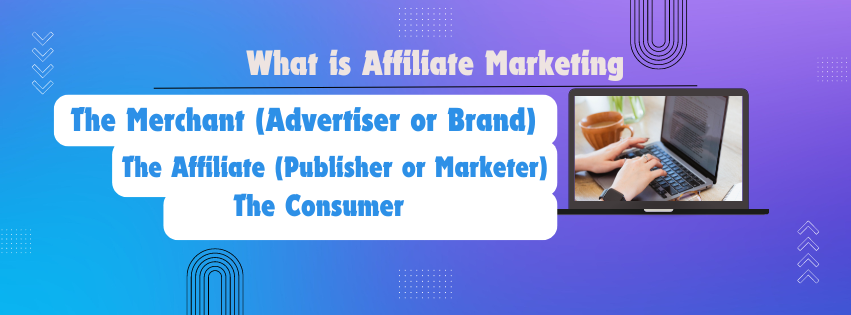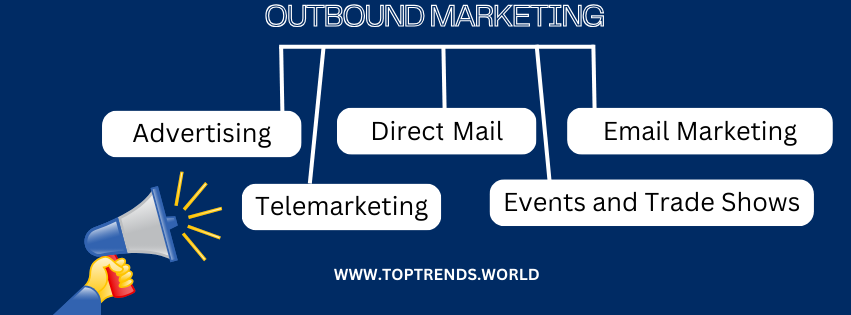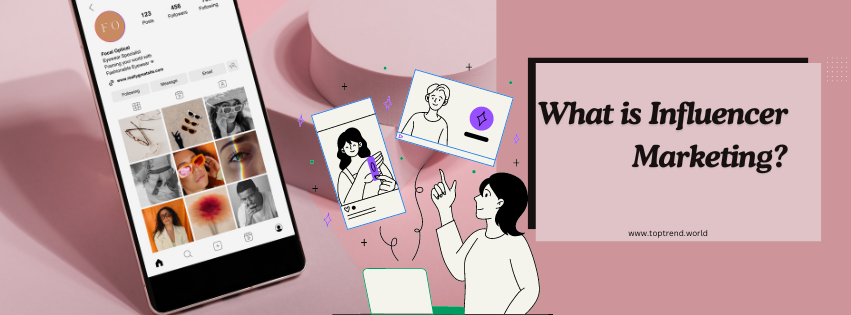Here is a complete blog on digital marketing, covering its importance, types, strategies, and tips for success.
Strategies, Tools, and Tips for Success
Digital marketing has transformed the way businesses reach and engage their audience. In today’s digital age, where consumers spend a significant amount of time online, having a robust digital marketing strategy is crucial for businesses of all sizes. This blog will provide a comprehensive overview of digital marketing, its key components, effective strategies, and tips for achieving success.

What is Digital Marketing?
Digital marketing refers to the use of digital channels and technologies to promote products, services, or brands. Unlike traditional marketing, which relies on mediums like print, radio, and television, digital marketing utilizes online platforms such as websites, social media, search engines, email, and mobile apps to connect with potential customers.
Key Benefits of Digital Marketing
- Global Reach: Digital marketing enables businesses to reach a global audience, transcending geographical boundaries.
- Cost-Effective: Compared to traditional marketing, digital marketing is more cost-effective, allowing businesses to achieve higher ROI.
- Measurable Results: Digital marketing provides access to real-time data and analytics, helping businesses measure the effectiveness of their campaigns.
- Targeted Audience: Businesses can tailor their marketing efforts to specific demographics, interests, and behaviors, ensuring that their message reaches the right audience.
- Enhanced Engagement: Digital channels allow for direct interaction and engagement with customers, fostering loyalty and building relationships.
Key Components of Digital Marketing
1. Search Engine Optimization (SEO)
SEO is the process of optimizing a website to rank higher in search engine results pages (SERPs). It involves various techniques to improve the website’s visibility and drive organic (unpaid) traffic.
- On-Page SEO: This involves optimizing individual web pages for specific keywords, improving content quality, and enhancing the overall user experience.
- Off-Page SEO: Focuses on building backlinks from reputable websites to increase the site’s authority and credibility.
- Technical SEO: Ensures that the website is optimized for search engine crawlers, with a focus on site speed, mobile-friendliness, and secure connections.
2. Pay-Per-Click (PPC) Advertising
PPC advertising is a model where advertisers pay a fee each time their ad is clicked. It’s a way to buy visits to your site rather than earning them organically. The most popular platforms for PPC are Google Ads and social media networks like Facebook and Instagram.
- Search Ads: Appear at the top of search engine results based on keyword bidding.
- Display Ads: Visual ads displayed on websites within the Google Display Network or other ad networks.
- Remarketing Ads: Target users who have previously visited your website or interacted with your content.
3. Social Media Marketing
Social media marketing involves promoting your brand and content on social media platforms to increase brand awareness, drive traffic, and generate leads.
- Organic Social Media: Posting content and engaging with followers on platforms like Facebook, Instagram, Twitter, LinkedIn, and TikTok.
- Paid Social Media: Running targeted ad campaigns to reach a larger and more specific audience.
- Influencer Marketing: Partnering with social media influencers to promote your brand or products.
4. Content Marketing
Content marketing focuses on creating and distributing valuable and relevant content to attract and retain a clearly defined audience. The goal is to drive profitable customer actions by providing valuable information and insights.
- Blogging: Writing articles on topics relevant to your audience to attract and engage them.
- Videos: Creating video content for platforms like YouTube or social media to convey messages more dynamically.
- Infographics: Visual representations of information or data to simplify complex topics.
5. Email Marketing
Email marketing involves sending targeted emails to a list of subscribers to promote products, share updates, or nurture relationships. It’s a powerful tool for building customer relationships and driving conversions.
- Newsletters: Regular updates sent to subscribers, covering news, tips, and promotions.
- Automated Email Sequences: Pre-set emails sent based on specific triggers, such as a user signing up or making a purchase.
- Promotional Emails: Special offers, discounts, or product launches sent to subscribers.
6. Affiliate Marketing
Affiliate marketing is a performance-based marketing model where businesses reward affiliates for each customer or sale generated through their marketing efforts. Affiliates promote products and services through various channels, earning a commission for each successful referral.
7. Mobile Marketing
Mobile marketing focuses on reaching customers through mobile devices, such as smartphones and tablets. It includes various tactics such as SMS marketing, mobile apps, and location-based marketing.
- Mobile Apps: Developing and promoting apps that provide value to your audience.
- SMS Marketing: Sending promotional text messages to customers.
- Location-Based Marketing: Targeting customers based on their geographic location.
8. Video Marketing
Video marketing involves using video content to promote products, services, or brands. It can be distributed through various channels, such as social media, YouTube, or your website.
- Product Demonstrations: Showcasing how products work through video.
- Customer Testimonials: Sharing customer success stories through video.
- Live Streams: Hosting live events, Q&A sessions, or product launches.
9. Web Analytics and Data Analysis
Web analytics involves tracking and analyzing data from your digital marketing efforts to make informed decisions and optimize performance.
- Google Analytics: A tool that provides insights into website traffic, user behavior, and conversions.
- Heatmaps: Visual representations of where users click or scroll on your website.
- A/B Testing: Testing different versions of a webpage or ad to determine which performs better.
Effective Strategies for Digital Marketing
1. Define Clear Goals
Before starting any digital marketing campaign, it’s crucial to define your goals. These could include increasing brand awareness, generating leads, driving sales, or boosting website traffic. Clear goals will help you measure the success of your campaigns and make necessary adjustments.
2. Understand Your Audience
Understanding your target audience is essential for creating effective digital marketing strategies. Conduct market research to identify their needs, preferences, and online behaviors. Use this information to tailor your marketing messages and choose the most appropriate channels for reaching your audience.
3. Create High-Quality Content
Content is at the heart of digital marketing. Create high-quality, engaging content that provides value to your audience and aligns with your brand message. Whether it’s blog posts, videos, infographics, or social media updates, your content should be relevant and informative.
4. Optimize for Mobile
With more users accessing the internet via mobile devices, it’s crucial to ensure your website and content are optimized for mobile viewing. This includes having a responsive website design, fast loading times, and easy navigation on smaller screens.
5. Leverage Social Media
Social media is a powerful tool for connecting with your audience and building brand awareness. Choose the social media platforms that best align with your target audience and business goals. Engage with your audience by responding to comments, messages, and reviews.
6. Use Data to Drive Decisions
Regularly analyze your digital marketing data to measure performance, identify trends, and make data-driven decisions. Use tools like Google Analytics to track website traffic, user behavior, and conversion rates. Adjust your strategies based on the insights you gather.
7. Personalize Your Marketing
Personalization can significantly improve engagement and conversion rates. Use customer data to personalize emails, content, and offers. This can include addressing customers by their name, recommending products based on their past purchases, or tailoring content to their interests.
8. Test and Optimize
Continuously test different aspects of your digital marketing campaigns, such as ad copy, email subject lines, and website design. Use the results to optimize your efforts for better performance. A/B testing is a valuable technique for identifying what works best for your audience.
9. Stay Updated with Trends
Digital marketing is constantly evolving, with new technologies and trends emerging regularly. Stay updated with the latest developments in the industry to ensure your strategies remain effective and competitive.
10. Integrate Your Marketing Efforts
Ensure that your digital marketing efforts are integrated across different channels and platforms. This creates a cohesive brand experience for your audience and maximizes the impact of your marketing campaigns.
Tips for Success in Digital Marketing
- Be Consistent: Consistency in your branding, messaging, and content helps build trust and recognition among your audience.
- Focus on Quality: Prioritize quality over quantity in your content and advertising efforts. High-quality content and ads are more likely to engage and convert your audience.
- Build Relationships: Digital marketing is not just about selling; it’s about building relationships with your audience. Engage with your audience, respond to their feedback, and provide value beyond your products or services.
- Monitor Competitors: Keep an eye on your competitors’ digital marketing strategies to identify opportunities and stay ahead of the curve.
- Stay Flexible: Be prepared to adapt your strategies based on changing market conditions, audience preferences, and technological advancements.
Conclusion
Digital marketing offers a wide range of opportunities for businesses to connect with their audience, build brand awareness, and drive conversions. By understanding the key components and strategies of digital marketing, you can create effective campaigns that achieve your business goals. Remember to stay flexible and adapt your strategies as the digital landscape continues to evolve.
This blog provides a comprehensive overview of digital marketing, making it a valuable resource for businesses and marketers looking to enhance their online presence and achieve success in the digital world.




nice blog for marketing